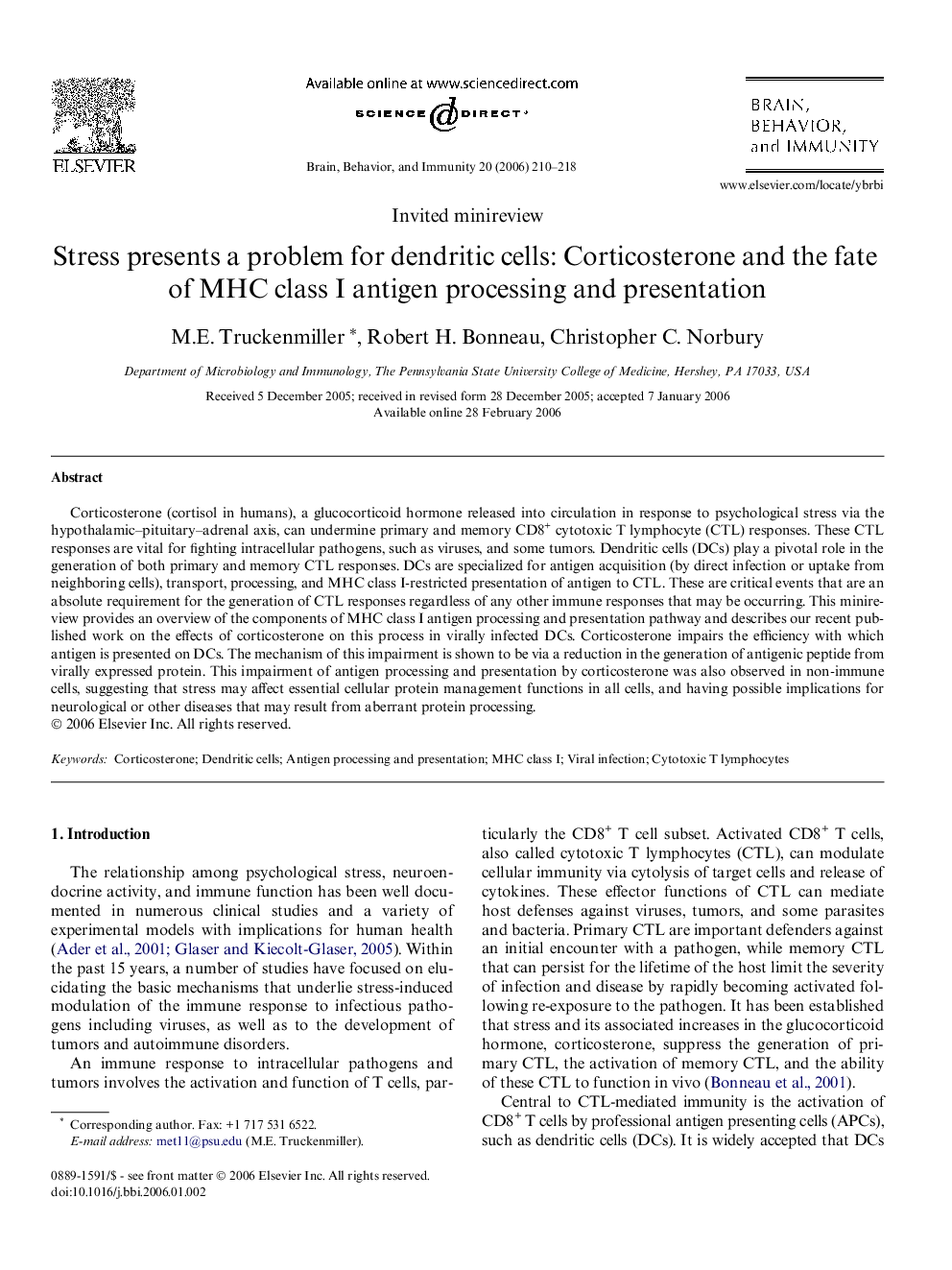| Article ID | Journal | Published Year | Pages | File Type |
|---|---|---|---|---|
| 923795 | Brain, Behavior, and Immunity | 2006 | 9 Pages |
Corticosterone (cortisol in humans), a glucocorticoid hormone released into circulation in response to psychological stress via the hypothalamic–pituitary–adrenal axis, can undermine primary and memory CD8+ cytotoxic T lymphocyte (CTL) responses. These CTL responses are vital for fighting intracellular pathogens, such as viruses, and some tumors. Dendritic cells (DCs) play a pivotal role in the generation of both primary and memory CTL responses. DCs are specialized for antigen acquisition (by direct infection or uptake from neighboring cells), transport, processing, and MHC class I-restricted presentation of antigen to CTL. These are critical events that are an absolute requirement for the generation of CTL responses regardless of any other immune responses that may be occurring. This minireview provides an overview of the components of MHC class I antigen processing and presentation pathway and describes our recent published work on the effects of corticosterone on this process in virally infected DCs. Corticosterone impairs the efficiency with which antigen is presented on DCs. The mechanism of this impairment is shown to be via a reduction in the generation of antigenic peptide from virally expressed protein. This impairment of antigen processing and presentation by corticosterone was also observed in non-immune cells, suggesting that stress may affect essential cellular protein management functions in all cells, and having possible implications for neurological or other diseases that may result from aberrant protein processing.
